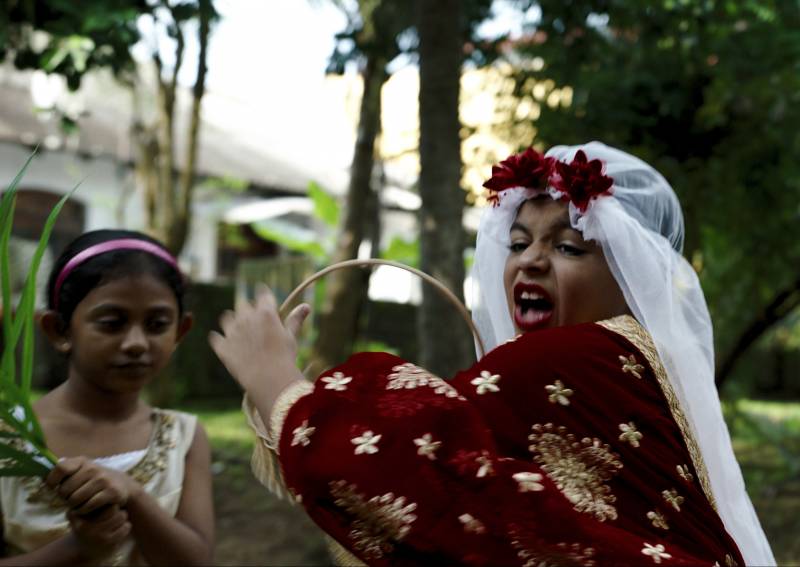In the opening pages of the 1994 Canadian novel Funny Boy, a young Sri Lankan boy named Arjie refuses to play cricket with the boys as his father insists. He’d rather bedazzle in bridal reds and join the girls’ make-believe wedding.
Novelist Shyam Selvadurai‘s gay coming of age novel became a critical and commercial sensation in Canada when it was first published, enduring as a pioneering story of queerness, politics, and South Asian history. As the new film adaptation opens with the sound of the ocean—establishing the lush seafront tropical landscape of Sri Lanka—a group of girls run across the screen, with Arjie’s veil billowing in the wind, gender non-conforming and proudly leading the way.
Funny Boy is directed by Oscar-nominated filmmaker Deepa Mehta, who has previously explored what it means to be an outsider in South Asian culture in a trilogy of acclaimed and controversial historical dramas: Fire, Earth and Water. Like author Shyam Selvadurai, Mehta is also an immigrant to Canada and she says it was Selvadurai’s interwoven narrative of being both a migrant and a queer outsider in his own culture that made it such a powerfully layered story of selfhood.
“It felt like a double whammy,” she says. “Not only was it about what it’s like to leave your homeland but it combines the feeling of looking different with actually being different all your life, which was queer. It was something I’d never read before.”
Funny Boy tells Arjie’s coming of age story as a privileged Tamil young man against the backdrop of the late 1970s and 1980s, as ethnic tensions between Sri Lanka’s Sinhalese majority and Tamil minority explode into full blown conflict. As Arjie falls in love with a queer Sinhalese classmate, he’s forced to confront the hardening borders and violence of ethnic difference. The devastating Sri Lankan civil war lasted for more than two decades and displaced generations, including author Shyam Selvadurai’s own blended Tamil-Sinhalese family who went to Toronto as refugees in 1983. Selvadurai says although he found his creative community in Canada among fellow queer immigrant writers, he never came across published novels that reflected their experience.

9(MDAxOTAwOTE4MDEyMTkxMDAzNjczZDljZA004))

